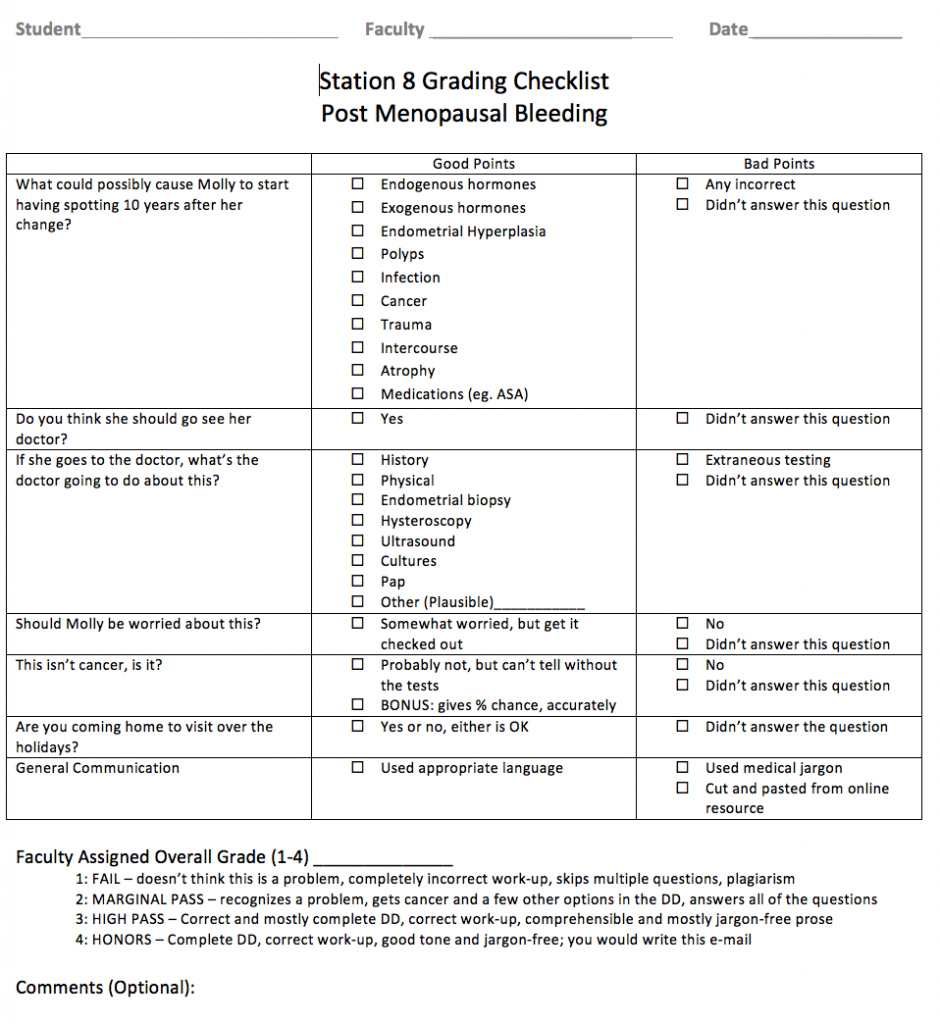This module tests the student’s:
- Understanding of the significance of Post Menopausal Bleeding
- Understanding of its’ various causes
- Understand of the work-up for PMB
- Understanding its’ relationship to malignancy
- Understanding the relative urgency of evaluation
- Ability to communicate medical issues in laymen’s language
- Ability to discuss a patient’s medical condition who is not their own patient, and whom they have never seen.
The student receives this message:
Your sister (a school teacher) called to say that one of her co-workers, Molly, just started having some vaginal spotting.
According to your sister, Molly is 61 years old and went through the change 10 years ago. Your sister thinks Molly should go to the doctor, but Molly wants to wait and see if the spotting will just go away. Molly reports she just started a Zumba class and believes she might have over-Zumba’d during the first week.
Your sister has these questions for you:
- What could possibly cause Molly to start having spotting 10 years after her change?
- Do you think she should go see her doctor?
- If she goes to the doctor, what’s the doctor going to do about this?
- Should Molly be worried about this?
- This isn’t cancer, is it?
- Are you coming home to visit over the holidays?
Email your sister at nnn@nnnnn.com and answer these questions for her. As she has no medical background, you should use wording she can easily understand. You may consult any resources you like, but you may not cut and paste from anything.
The student uses their own email to send their response to a working email address that redirects the response to me. I later grade the responses using this format:

A copy (pdf) of the grading sheet can be downloaded here:
Results
I think the hardest part of this module is the students pacing themselves for time. They can certainly look up the answers to most of these questions, but that takes time, and they are trying to complete the other exercises.
It is very uncommon that a student won’t respond to the question about coming home for the holidays, but they sometimes skip over other questions.
Many of them are not used to discussing medical issues with non-medical people, and this, too, represents a challenge for them. Their training has been that it’s OK to use a real medical word, so long as they provide a short explanation of what that means for non-medical people.
Most of them grasp the need to be a little qualified in their answers, because they are writing about a patient they have neither seen nor examined.
